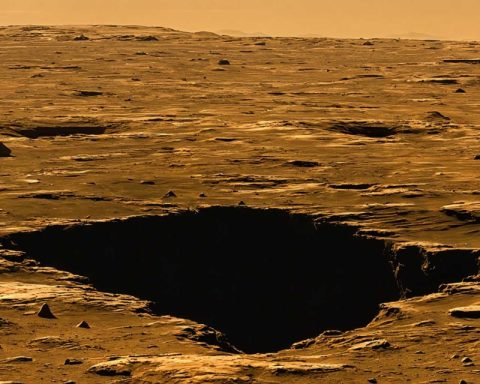2024 has proven to be a historic year for Rocket Lab. The aerospace company successfully launched its 16th Electron rocket on December 22, marking a remarkable achievement in its pursuit of space exploration. This latest mission, aptly named “Owl The Way Up,” took off from Rocket Lab Launch Complex 1 in Mahia, New Zealand, at 03:17 NZT.
During this launch, Rocket Lab deployed a StriX satellite for Japanese company Synspective, which specializes in Earth observation. This satellite is part of a constellation equipped with synthetic aperture radar technology, enabling it to capture precise images of the Earth’s surface, regardless of weather conditions. With this mission, Rocket Lab further solidified its role as the exclusive launch provider for Synspective’s satellite network since their first collaboration in December 2020.
2024 was a groundbreaking year for Rocket Lab as it set a new record, completing 16 launches and proudly achieving a 100% success rate. This remarkable performance eclipsed the previous year’s record of 10 launches, showcasing a 60% increase in launch activity.
As Rocket Lab looks to the future, it is eager to continue expanding its launch capabilities, introducing its Neutron rocket, and planning more ambitious missions. With their eye on 2025, Rocket Lab is set to deepen its contributions to space exploration and satellite technology.
Rocket Lab’s 2024 Milestones: Unprecedented Success and Future Endeavors
Overview of Rocket Lab’s Achievements in 2024
Rocket Lab has marked 2024 as a historic year, accomplishing a total of 16 successful launches, featuring a perfect 100% success rate. This achievement not only surpasses their previous record of 10 launches in 2023 but also highlights a remarkable 60% increase in launch activity, further establishing Rocket Lab’s reputation as a leading player in the aerospace sector.
Groundbreaking Missions and Technology
One of the standout missions of 2024 occurred on December 22, with the successful launch of the “Owl The Way Up” mission. This mission involved deploying a StriX satellite for Synspective, a Japanese company focused on Earth observation. The StriX satellite is armed with advanced synthetic aperture radar (SAR) technology, allowing it to capture detailed images of Earth’s surface under various weather conditions. This technological capability is critical for applications such as disaster management, urban planning, and environmental monitoring.
Future Launches and Innovations
Looking forward, Rocket Lab is set to enhance its launch capabilities with the introduction of the Neutron rocket. Expected to cater to a wider range of payload sizes and types compared to the Electron rocket, Neutron will play a key role in supporting larger satellite constellations and interplanetary missions.
Features and Specifications of the Neutron Rocket
– Reusable First Stage: Aimed at reducing launch costs significantly.
– Payload Capacity: Designed to carry larger payloads to various orbits including low Earth orbit (LEO) and beyond.
– Innovative Technologies: Incorporation of advanced propulsion systems and materials, improving both efficiency and reliability.
Market Trends and Analysis
The increase in launch frequency by Rocket Lab mirrors a growing trend in the aerospace industry towards small satellite launches. As organizations and governments invest more heavily in satellite technologies for communication, navigation, and Earth observation, companies like Rocket Lab are uniquely positioned to cater to this burgeoning market.
Pros and Cons of Rocket Lab’s Services
Pros:
– High success rate and reliability of launches.
– Flexibility in payload accommodations, especially for small to medium satellites.
– Commitment to innovative technology development.
Cons:
– Limited historical data on the performance of new rocket models like Neutron until further launches occur.
– Competitive market with several players vying for similar contracts and customers.
User Cases for Satellite Technology
Satellites deployed by Rocket Lab are essential for a range of applications:
– Environmental Monitoring: Tracking changes in climate and natural resources.
– Disaster Response: Providing real-time data during emergencies for informed decision-making.
– Urban Development: Assisting city planners with data related to urban expansion and infrastructure needs.
Predictions and Future Developments
As Rocket Lab continues to ramp up its activities, experts predict that the company will not only deepen its role in satellite launches but also expand into more complex missions, potentially including crewed spaceflight and interplanetary exploration. Collaborations with various countries and organizations are expected to bolster its portfolio and drive innovation in space technology further.
For more information on Rocket Lab and their future missions, visit Rocket Lab.












